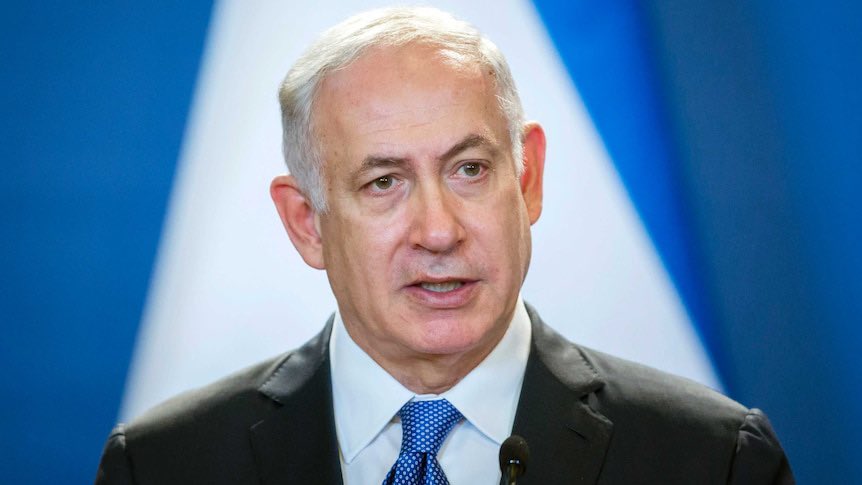Israeli Prime Minister Benjamin Netanyahu is poised to propose a full reoccupation of the Gaza Strip, a significant and controversial shift in Israel’s approach to the long-standing conflict with Hamas and the Palestinians in Gaza. Israeli media and official sources indicate that Netanyahu plans to present this strategy at an upcoming security cabinet meeting, signaling a decisive move to regain complete control over Gaza after nearly two decades since Israel’s unilateral withdrawal in 2005.
The plan, according to reports, involves a comprehensive military takeover of the Gaza territory, aiming to dismantle Hamas’s governance and military capabilities entirely. A senior Israeli official was quoted saying,
“The die has been cast. We’re pursuing the complete conquest of the Gaza Strip – and the defeat of Hamas.”
This assertion underscores Netanyahu’s firm stance to not only neutralize Hamas as a militant organization but also to assert direct Israeli administration over Gaza, effectively ending the enclave’s autonomous status under Hamas control.
Despite its determination, Netanyahu’s plan faces significant opposition within military ranks. The Israeli army chief and other top military officials reportedly oppose the proposal, concerned about the operational feasibility and the risks associated with urban warfare, hostage safety, and potential protracted conflict. In response, a senior government official reportedly told Israeli Army Radio that if the plan does not suit the chief of staff, “he should resign,” highlighting deep tensions within Israel’s security leadership regarding the offensive’s future direction.
The reoccupation plan also generates intense concern among the families of hostages believed to be held in Gaza. Estimates suggest that approximately 20 out of 50 hostages are still alive in the enclave, and families worry that extensive military operations could endanger the captives’ lives. Public opinion in Israel, according to several polls, leans towards a ceasefire or negotiated deal for hostage release rather than a full-scale occupation, revealing domestic divisions on how best to resolve the conflict.
Internationally, Netanyahu’s move is expected to meet condemnation from many of Israel’s close allies, who have been advocating for an end to hostilities and humanitarian relief for Palestinians in Gaza. The reoccupation plan comes amid mounting global pressure to revive peace initiatives based on the two-state solution framework, which envisions coexistence between Israel and an independent Palestinian state. Several countries, including the UK and Canada, have recently announced intentions to recognize a Palestinian state, marking a geopolitical landscape increasingly critical of unilateral military actions.
Palestinian Authority representatives have strongly condemned the proposal, issuing calls for global intervention to prevent what they describe as a new military occupation. The plan aligns with statements from far-right Israeli ministers advocating for Gaza’s annexation and the establishment of Jewish settlements, a scenario fraught with implications for regional stability and Palestinian rights.
Historically, Israel withdrew its military forces and dismantled settlements in Gaza in 2005 but maintained stringent control over the region’s borders, airspace, and maritime access, effectively imposing a blockade with the cooperation of Egypt. Netanyahu’s proposed reoccupation would mark a fundamental reversal of this status quo, reigniting debates about sovereignty, security, and human rights in Gaza.
Netanyahu has framed the military initiative around three primary objectives: defeating Hamas, securing the release of hostages, and preventing future attacks against Israel from the territory. He announced plans to convene a broader security cabinet meeting to direct military strategy, which is expected to focus on encircling central refugee camps and initiating coordinated air and ground assaults.
However, Israeli media observers remain skeptical about the plan’s military viability and political consequences. Netanyahu’s previous commitments in the long-running conflict have faced criticism for prolonging violence without decisive outcomes. Critics argue that a full Gaza occupation risks igniting endless warfare, worsening humanitarian conditions, and strengthening Hamas’s ideological appeal, rather than diminishing it.
In conclusion, Netanyahu’s proposal to fully reoccupy Gaza represents a bold gamble with profound military, political, and human implications. It confronts the complex realities of urban warfare, hostage safety, international diplomacy, and the enduring aspirations of both Israelis and Palestinians. As the debate intensifies, the future of Gaza and the broader Israeli-Palestinian conflict hangs in a precarious balance, with global actors watching closely for what could be one of the most consequential decisions in recent Middle Eastern history.

